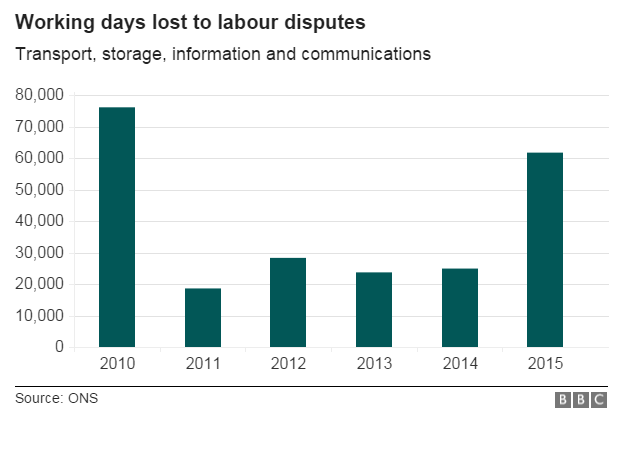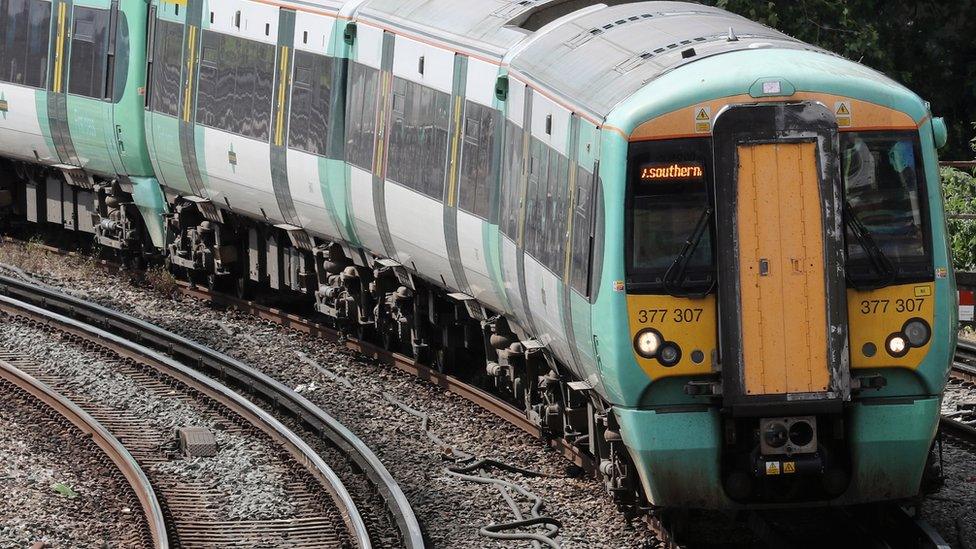Reality Check: Are we having more rail strikes than usual?
- Published

It feels as if there is currently a great deal of industrial unrest in the train sector, with Southern and Eurostar both currently involved in disputes.
Are there more strikes than usual at the moment?
The Office for National Statistics (ONS) publishes a report each year, external showing the number of working days lost to labour disputes.
In 2015 there was a total of 169,600, well down on the figure of 788,300 the previous year.
By far the biggest contributor to that was in the transport, storage, information and communications category, from which 61,700 working days were lost, more than one third of the total.
That was the highest level in the sector since 2010. Actually, both years were dwarfed by 2009, when 296,200 days were lost in that category, but that was because the Royal Mail strikes of that year also counted towards the category.
The ONS also publishes monthly figures, external - so far only the figures up to the end of May are available - the numbers for June are due out next Wednesday.
In the first five months of the year there were 3,400 days lost to labour disputes, which is considerably fewer than the number lost in just January of 2015.
It's also the smallest number of days lost in the first five months of the year since 2011. This is despite RMT members on Southern Trains having been holding one-day strikes since April.
The numbers are likely to rise as more figures emerge involving the Southern strikes before they were suspended and the Eurostar strikes if they go ahead, but in the months for which official figures exist so far, it has been a very quiet year for strikes.



- Published10 August 2016

- Published10 August 2016

- Published22 February 2016
